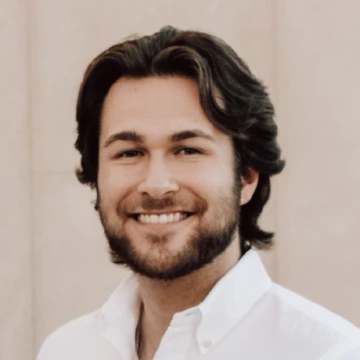Using AI Tools to Advance Workforce Development in Quantum Information Science
In an effort to advance the understanding of quantum science, researchers at the NSF Center for Quantum Networks (CQN) have developed AI tools ChatCQN and ChatTutor. Hunter Kemeny, a former student in CQN’s undergraduate summer research program (REU) and now a Quantum Physics graduate student at Harvard, came up with the idea for the AI tools. With an education fellowship from CQN, he and his friend Aatmik Mallya, a Computational Biology graduate student at Yale, and Adrian and Alexandru Ariton, currently visiting students with Professor Dirk Englund at MIT, developed the tools. ChatCQN - contains up-to-date knowledge of all papers associated with CQN while ChatTutor - a large-language model using a custom content retrieval pipeline for students tailed to every teacher’s course.
ChatCQN is a user-friendly tool for experts as well as students at the high school and college levels.
Testimonial:
"I found that the ChatCQN was quite good at directing me to the most relevant papers from the CQN collaboration and providing a brief summary of how information in the paper might answer specific questions I'm asking. This has been particularly helpful when I'm trying to understand how different thrusts in the CQN grant relate to each other. Also, when I asked questions that were outside the scope of the CQN papers the ChatCQN had access to, the responses indicated that, which is not always true of chatbots!" CQN Harvard Graduate Student
"I used the Chatbot today (on the CQN website) for understanding the importance of entanglement Swap circuit in Quantum Networks. It gave an extremely insightful explanation and also, I didn't have to ask my mentor about it, which is super helpful." CQN REU Student
ChatTutor is a 24/7 teacher’s assistant that provides instantaneous, high-quality answers to student questions on readings, exercises, and other class material. It can even help to pinpoint where students are struggling with concepts and identify who needs extra help. ChatTutor utilizes large-language models and a custom content retrieval pipeline to tailor each chatbot for every teacher’s course. Accessibility is a key feature of ChatTutor, ensuring that personalized tutoring is available to all. And yet, it also has robust safeguards to prevent academic dishonesty and protect student privacy through FERPA compliance.
In the fall of 2023, the team began developing ChatTutor for university courses focused on quantum physics, namely BYU Professor Ryan Camacho’s Photonics Bootcamp and Professor Dirk Englund’s course, Laboratory in Quantum Systems Engineering. After getting positive feedback from MIT faculty, Kemeny started a company to scale ChatTutor and expand its scope to include universities and high schools nationwide, embarking on a mission to bring about a new age of personalized education. During the summer of 2024, the ChatTutor team began working with the NSF Center for Semiconductor Manufacturing to develop the tool for a new career and technical education (CTE) course on semiconductors at Hamilton High School in the Chandler Unified School District in Arizona, where both Hunter and Aatmik are alumni.
Testimonials:
"ChatTutor was fun to use for my course. It integrated well and the best part was that it (mostly) knew how to interpret code that went along with the material." CQN BYU Professor
This work was supported primarily by the Engineering Research Centers Program of the National Science Foundation under NSF Cooperative Agreement No. 1941583. Any opinions, findings and conclusions or recommendations expressed in this material are those of the author(s) and do not necessarily reflect those of the National Science Foundation.


